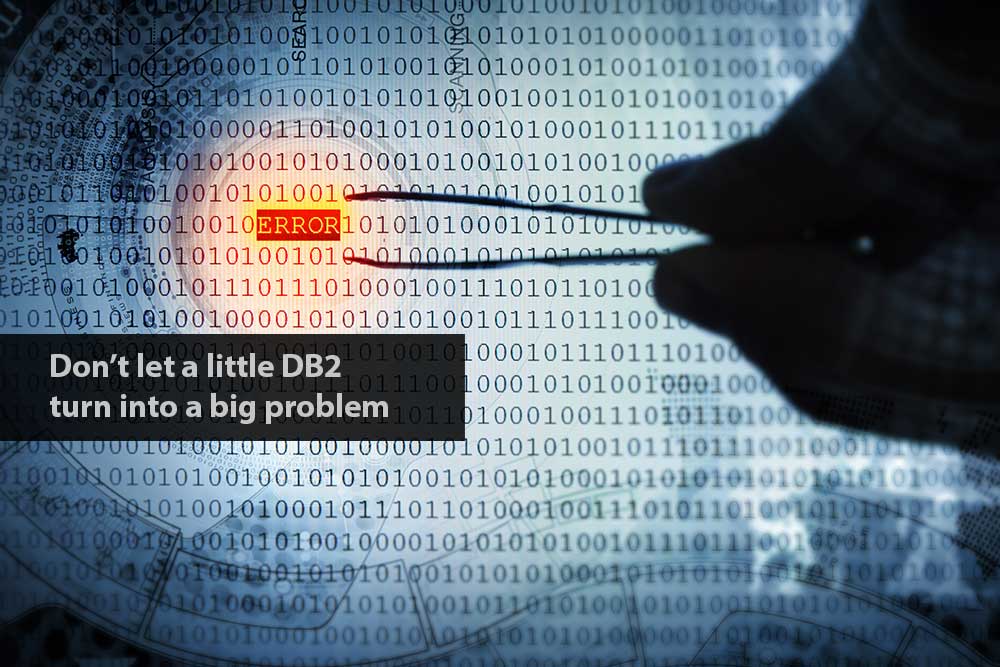You may never have planned to use DB2, but you still have to manage it. A remote support solution could well be the answer you’re looking for.
There are several ways in which you can end up as an ‘accidental’ DB2 user.
You might have bought an application that shipped with the vendor’s preferred database, without fully appreciating the implications. For example, Maximo, SAP, Tivoli Storage Manager and IBM Business Process Manager all recommend DB2.
Alternatively, you might have acquired another business that has a small DB2 installation running somewhere – perhaps under cover of another application.
As long as everything runs smoothly, it’s plain sailing. But sooner or later, an issue with DB2 is bound to come up. At that point, you’re faced with the task of troubleshooting a database that you rarely use – or may never have used at all.
And even though your DB2 database may be small fry in the context of your whole business, data loss could still be a big problem. Any data breach, however small, can put a real dent in your reputation.
You could retrain your Oracle or SQL DBAs on DB2, or even appoint a new DBA to manage the database. But either option will cost a lot of time and money for the sake of an occasional, ad hoc requirement.
Fortunately, there’s a better and far easier way.
Our RemoteDBA Lite service is a streamlined version of our popular RemoteDBA support package, especially designed for smaller and more stable DB2 environments.
If you have just one or two DB2 databases, use DB2 for production only and have a relatively stable IT environment, RemoteDBA Lite is exactly what you need.
As a RemoteDBA Lite client, you get two-hour rapid response to incidents, up to 20 hours’ expert DB2 consultancy every year and your own dedicated support hotline and account manager. Whatever the future brings, you’ll be ready.
The arrangement kicks off with a ‘health check’ of your DB2 system, after which we’ll give you monthly reports on the status of your system. That means reassurance from day one, and for as long as you continue to use DB2.
For more information and a feature breakdown, check out our page dedicated to RemoteDBA Lite.


